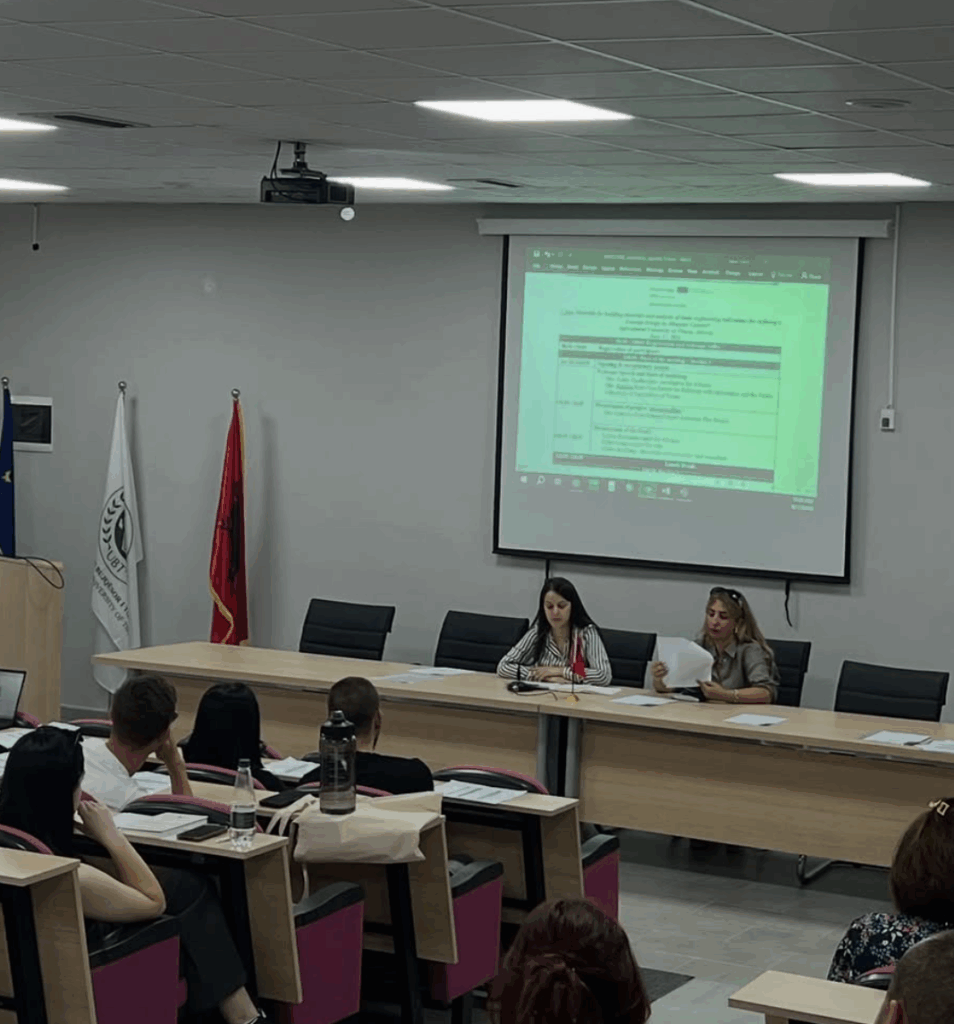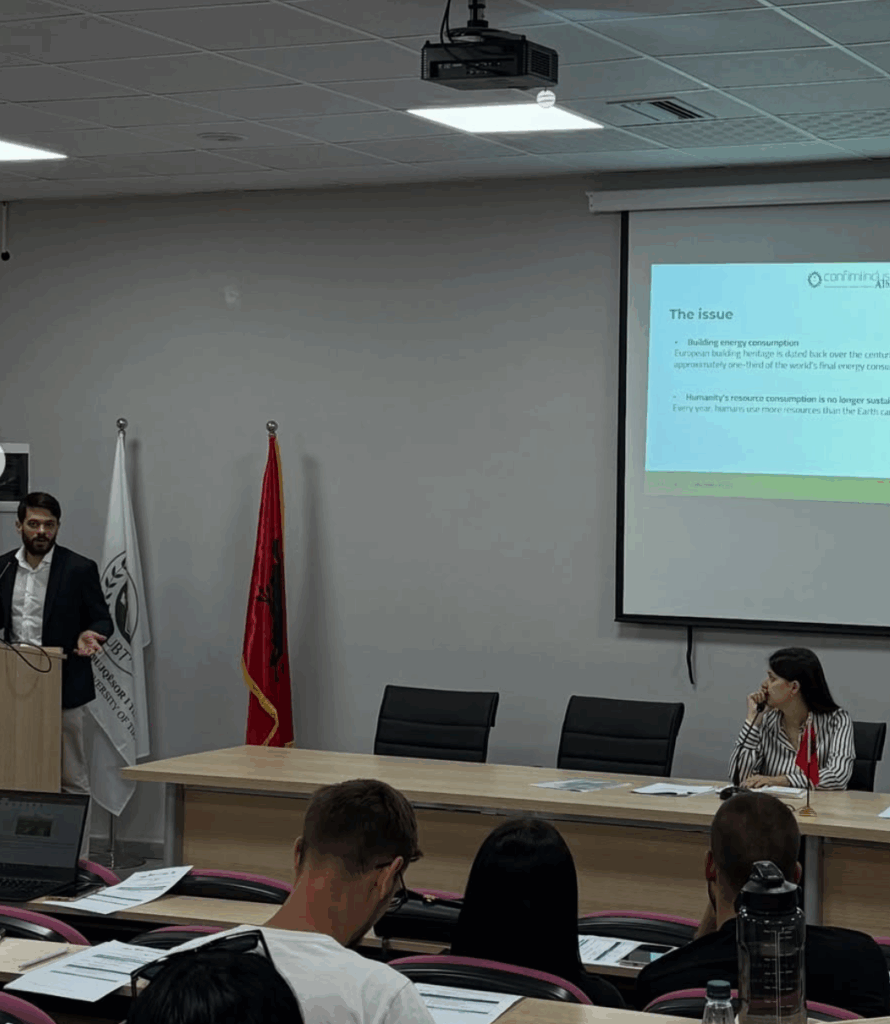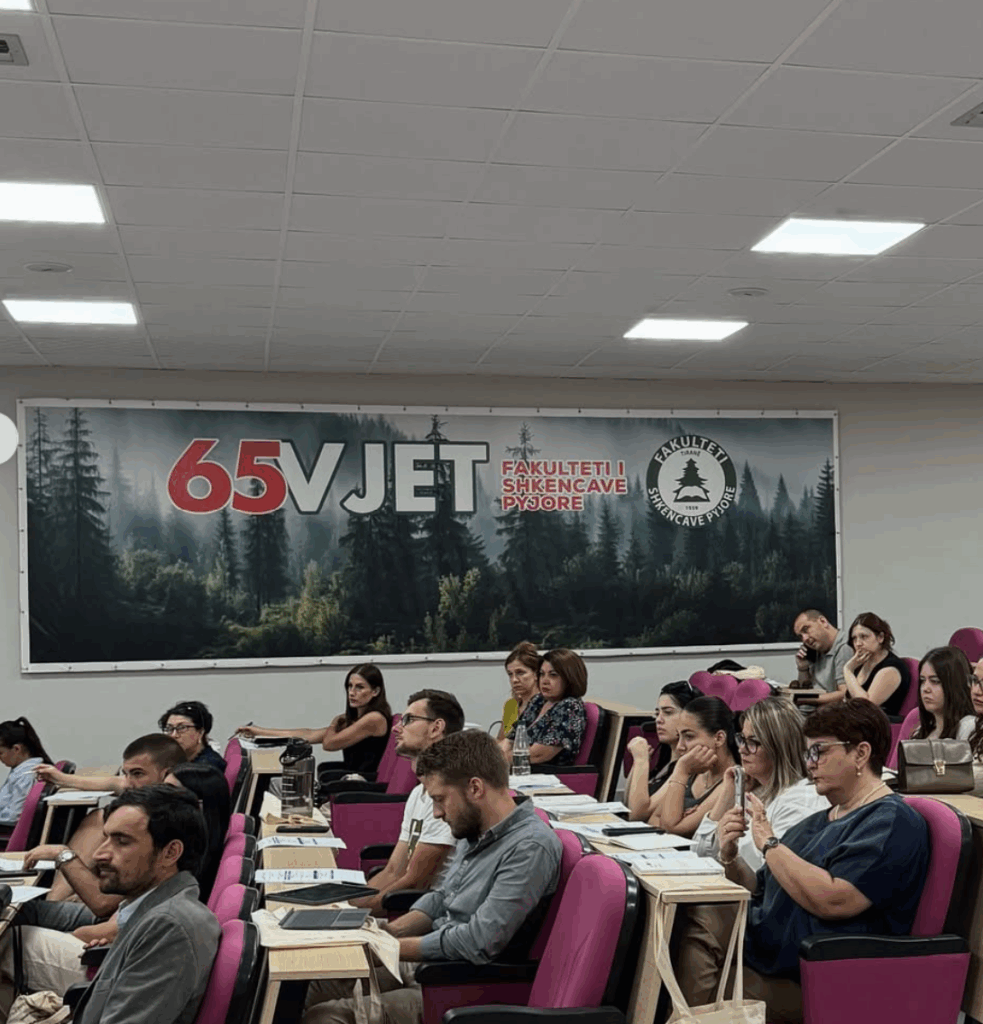Confimi Albania successfully organized the second workshop of the AwesomePlus Project, part of the IPA South Adriatic Programme, with a continued focus on sustainable development through the reuse of agricultural waste.
Held in Tirana, this workshop gathered key stakeholders from Albania, Italy, and other partner countries, reaffirming the importance of cross-border cooperation in promoting eco-friendly practices and circular economy solutions.
One of the central highlights of the event was the presentation of the first comprehensive study on agricultural waste in Albania, conducted by Mr. Lulzim Bauman, an expert with deep knowledge of the country’s waste management systems. His findings shed light on the potential of transforming waste into valuable resources for construction and other civil uses.
Following this, Mr. Fabio Longo presented the results of the Italian study, offering a comparative perspective and best practices from Italy that could be adapted in Albania and the broader Adriatic region.
Adding an inspiring and practical dimension to the workshop, Ms. Ulrike shared her pioneering work in building sustainable strawbale houses in Albania. Her work exemplifies how agricultural waste can be transformed into eco-friendly housing solutions, contributing to both environmental protection and affordable living.
The workshop was honored by the presence of Mrs. Romina Koto, Vice Rector of the Agricultural University of Tirana, who emphasized the importance of integrating sustainability into academic research and education.
The event attracted a wide and diverse audience including representatives from municipalities, students, NGOs, and other key stakeholders in the field of sustainability and green innovation. Their active participation and exchange of ideas underscored the shared commitment to addressing environmental challenges through innovative, collaborative approaches.
The second workshop marked another important step in the AwesomePlus Project, reinforcing the shared mission of transforming agricultural waste into a resource and fostering a greener, more sustainable future for the South Adriatic region.





